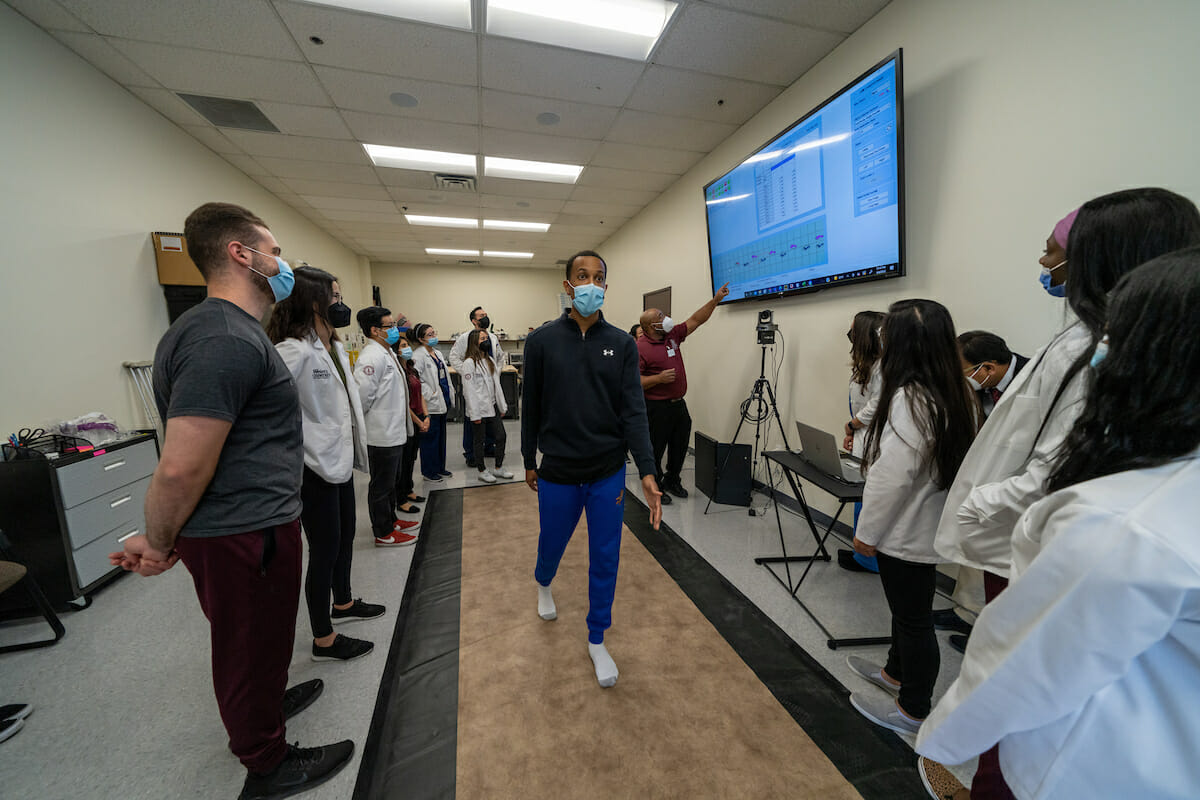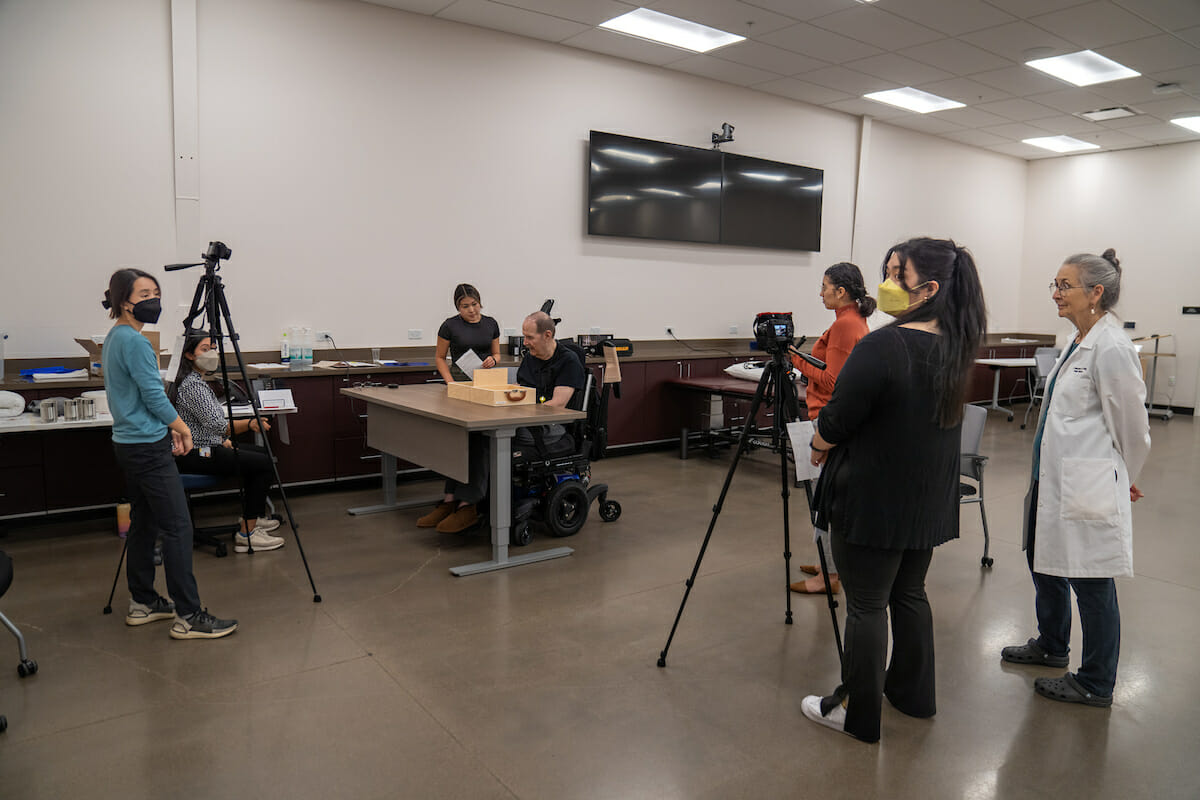
Research Facilities
CHS Research Space, California
Research is conducted either in the community or in a dedicated research lab located about two miles from campus. The college establishes community partnerships with hospitals, private clinics, outpatient and rehab centers, community agencies, and public and private schools to conduct collaborative research. These valued partnerships provide a robust environment in which to gather significant data on those individuals who can benefit the most from the research results. Studies that require state-of-the art equipment such as for balance testing and gait analysis are conducted in the off-campus lab. Other portable equipment, such as US imaging and surface EMG, is available for use in the community partner’s clinical setting.

Gait Analysis Lab
CHS-Northwest Research Space, Oregon
The CHS-Northwest building houses a large, shared research space that can be flexibly transformed to meet the needs of each research project. This modern space contains a plethora of sophisticated equipment used for video- and sensor-based movement analysis, surface EMG studies, isokinetic strength measurements, gait analysis and balance evaluations. It also has dedicated room for anatomical research, equipped with a 3D printer.


